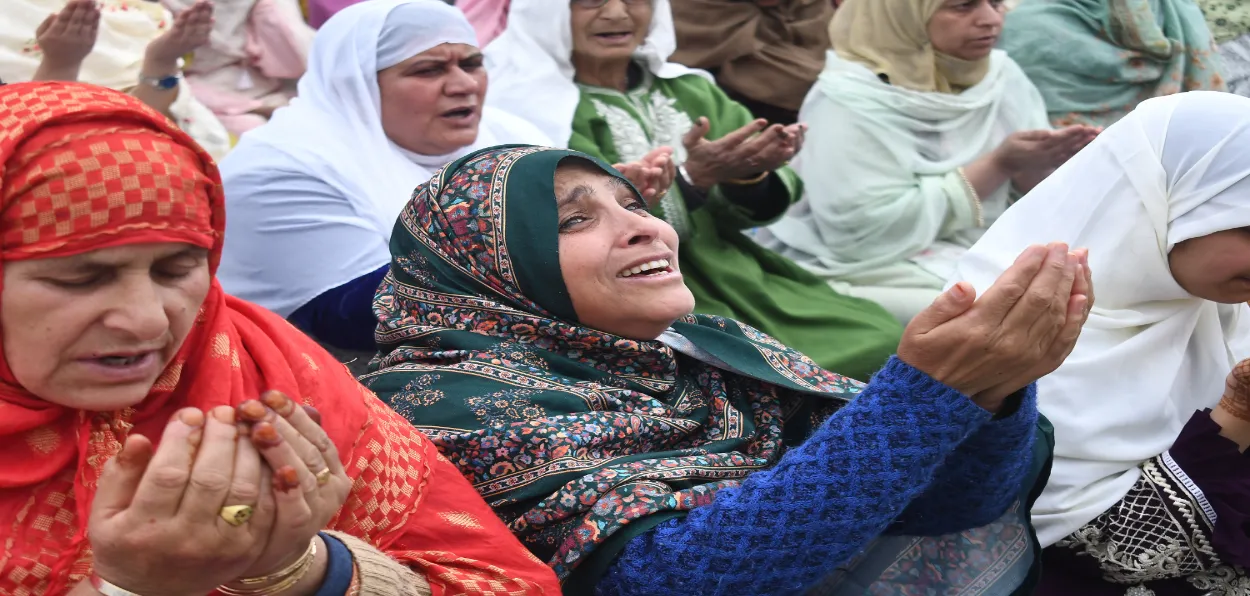
Aasha Khosa/New Delhi
It may sound unbelievable but is true that the Muslim women of India’s only Muslim-majority State Jammu and Kashmir had no inheritance rights till 16 years ago.
It was left to the whims and fancies of their male relatives to decide on the distribution of parental property and in most cases, it went to the male heir. A woman's wishes and aspirations were to remain a guarded secret, lest she faces strong backlash from society for being a "greedy sister.".
Under the provisions of the State’s Constitution that have since been abolished, women’s inheritance was to be done as per the local traditions. This ended in perpetuating the male preference of the families in the distribution and ownership of wealth and property.
Forget about equality, the Quranic provisions on inheritance that give one-third of parental property to the daughters did not apply to the women although violation of these edicts is considered un-Islamic and a sin.
It was only in 2007, during the Chief Minister-ship of Ghulam Nabi Azad that a law based on Sharia on Muslim personal code on inheritance was enacted in J&K.
Ironically, the initiative for the law came in the form of a private members’ bill in the J&K Legislative Assembly. A private members’ bill rarely becomes a law in the Indian legislature since the responsibility of drafting a law is that of the government.
The bill that eventually became the J&K Muslim Personal Law (Shariat) Application Act, 2007, was passed by a voice vote. Members cutting across the parties spoke against the injustices meted out to Muslim women for a long period. Members spoke about the overdue inheritance rights of women.
Added to this, were the provisions of Article 35A that have since been abolished. This particular provision was used by the J&K rulers to deprive women of J&K who were married to non-J&K Indians or foreigners of their inheritance.
Under the autonomy granted to the former State under Article 370 - since made redundant – the women who married non-state subjects - as the residents of J&K were called officially till August 5, 2019 - could not inherit or own the properties.
After a long legal battle, the Supreme Court granted them the right to inherit property but still, they had no right to pass it on to their children born out of the marriage with a non-resident.
This double whammy denied the ownership of the ancestral or any property to such women. It was a brazen form of gender discrimination.
However, as it happened in Kashmir, due to insurgency and political unrest, all the important gender issues were pushed under the carpet and a conspiracy of silence enveloped these for too long.
This way the abrogation of the special status of J&K and bringing the former state and what is today’s Union Territory at par with the rest of the country has not only ended discrimination against several communities – scheduled castes, war refugees, west Pakistan refugees, Internally-displaced Indians, it has also helped women get rights as other Indian women.
After August 5, 2019, big-ticket changes in J&K saw the abolition of the State's special status and its bifurcation into two Union territories, the J&K residents are not required to have a Permanent Resident Certificate (RPC) to prove their bona fide.
All the people who belonged to the former state and some other category people are now supposed to apply for domicile certificates. This includes women who had lost their PRC status after marrying outsiders.
According to reports, nearly four lakh people have so far acquired domicile certificates, and out of these, there are just about 80,000 applicants in the Kashmir division. Authorities say between 2 and 3% of them would be women married to spouses from outside J&K.
There are a lot of Kashmiri women who got married to outsiders during the last three decades of turmoil. Firstly, many parents thought it safer to marry their daughters to non-locals due to fear of terror links of the perspective matches that came the traditional way through matchmakers in Kashmir that their daughter might end up with a man who may be on the wrong side of the law.
ALSO READ:
Secondly, a large number of women went out of J&K for education and ended up marrying non-locals.
Most of such Kashmiri girls are rushing to get their domicile certificates to regain their identity and status as “daughters of Kashmir.’
